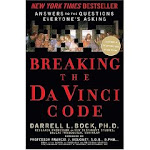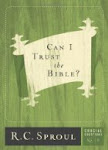Read Exodus 13:1-10
"Then the Lord spoke to Moses, saying, "Consecrate to Me all the firstborn, whatever opens th womb among the children of Israel, both of man and beast; it is Mine."
With these words, we see that God lays a claim upon the people of Israel. He sets apart the firstborn all the nation for Himself.
What do you suppose is the significance of the firstborn being consecrated to God?
Remember that all of these are the very ones whom God spared from death in Egypt!
So God claims Israel as His own, again, not because of any implicit worth in them, but because of what He did for them! He redeemed them, meaning He paid a price for them. This being the case, He has set them apart for a particular purpose. For His purpose, for His glory.
In verses 3-7 we see how God demands they remember what He has done for them...and a part of this remembering involves the unleavened bread.
Read 1 Corinthians 5:7-8
The fact that we are saved and that we have been bought by the blood of Christ, just as Israel was redeemed by the blood of the lamb, does not free us to sin without fear of eternal punishment. On the contrary, our redemption imposes upon us a higher duty to keep away from evil, to not indulge the desires of the flesh, and to not keep worldly company.
What does it mean that we should not keep worldly company? This is not saying we need to avoid people who are not Believers, for how else could we "win" them to Christ? No, to understand the meaning behind this, ask yourself the following:
Who are the people you have the most contact with?
Who are those whom you spend the most time with recreationally?
Who do you seek out for friendship?
If you are a Child of Christ, then the answer to all of the above should be that it is other Christians! If we find that the people we most seek out, whethet at work or wherever else, are not Believers, then we should ask ourselves why! How could we say we love our Risen Lord and not love those for whom He perished and rose again?
Read Matthew 16:6-12
Note the warning which Jesus gave to His disciples:
To impose upon the Word something that is not there, to impose traditions that supersede the Scriptures, and to put ritual ahead of true faith is the essence of what Jesus warned about. This is the leaven of hypocrisy.
In Mark we also read about the leaven of Herod. What do you suppose this speaks to? The leaven herein speaks to friendship with the world!
So that when we join the world in mocking our Lord, we sin.
When we allow ourselves to compromise our standards for the sake of being friendly, we sin.
And when we keep silent and our Lord is being degraded, we sin.
Basically then, we as Believers have the obligation of obedience to our Lord. He has the right to expect us to live lives differently than the unbeliever does. And He has the right to expect us to remember His sacrifice for us.
It can be said, then, that the Passover for the Believer is now the Lord’s Supper. We must remember this and we must do so regularly.
You see, as Believers, our lives were saved from eternal damnation, and we no longer belong to ourselves, we are slaves to Christ. It is not for some simple reason that Luther taught on the bondage of the will...and it was not out of thin air that Luther spoke on this, for look to Romans 6:15-23 and you will see that Luther did nothing but echo the inspired words of Paul!
One final comment...note Exodus 13:8
"And you shall tell your son in that day, saying, "This is done because of what the Lord did for me when I came up from Egypt."
The most important thing for us to do is to tell our children about the hope that is in us! What the Lord did for me!!! Oh that all of us parents would make this a priority instead of leaving it to others!
Tuesday, April 21, 2009
Subscribe to:
Post Comments (Atom)





No comments:
Post a Comment